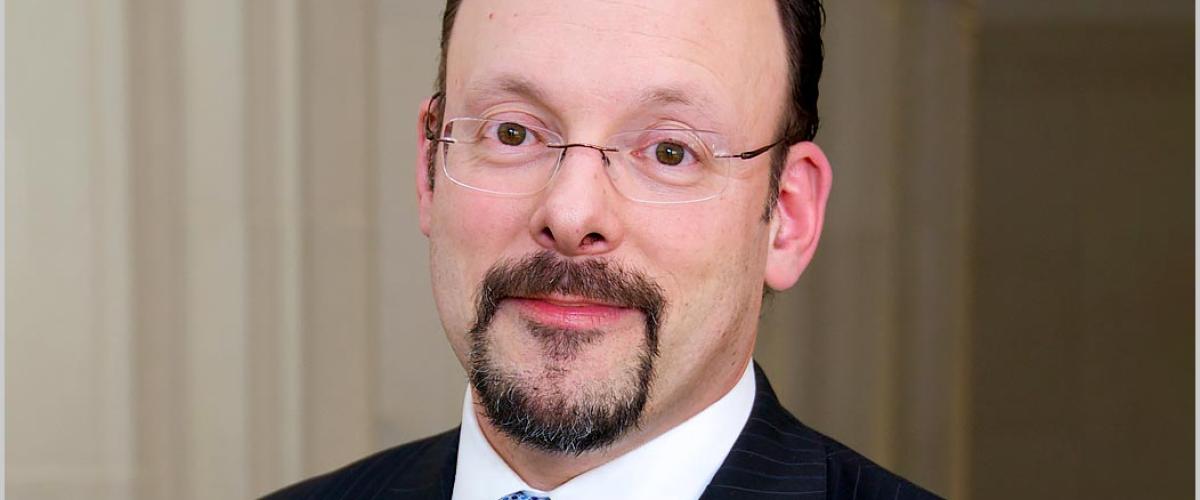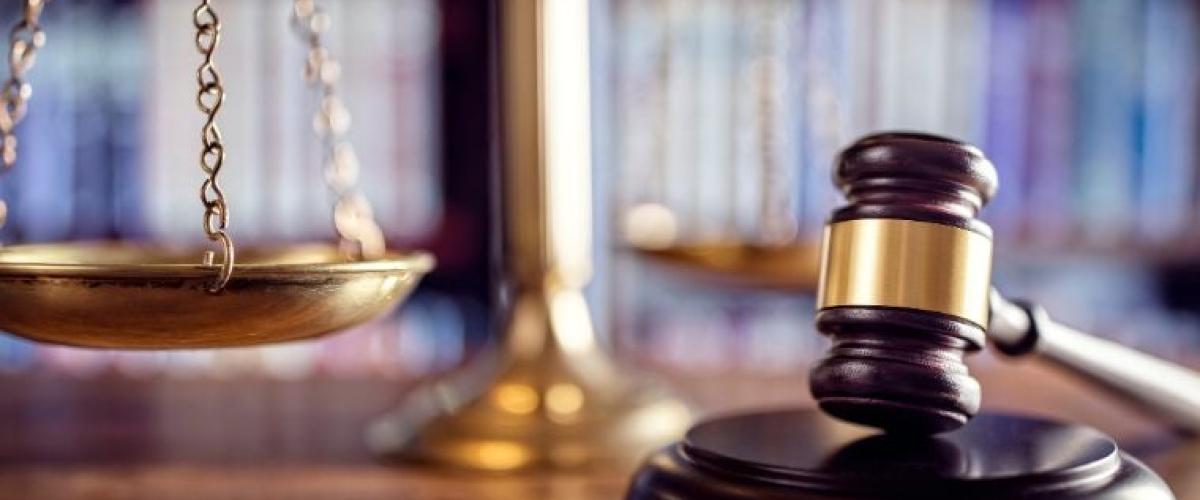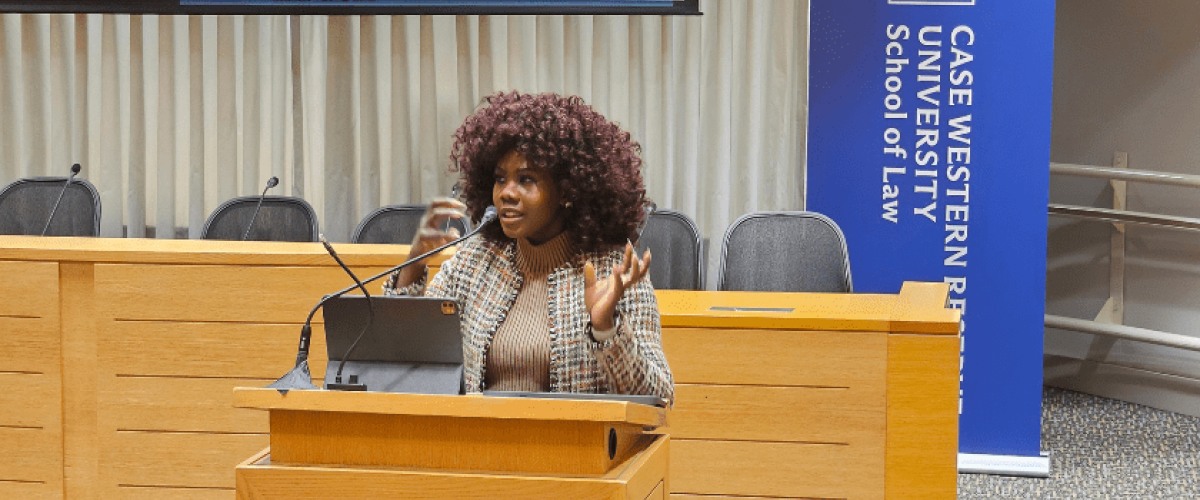Every year, Case Western Reserve University School of Law hosts online and in-person events. This fall, we hosted a wide variety of lectures, panels and presentations covering a range of topics from climate change and energy justice to investment crowdfunding and crimes against humanity. These events provide valuable learning opportunities for our students, faculty and attorneys in the Cleveland area.
If you missed any of our fall events, you can find their recaps here.
Need end of the year CLE credits? You can get up to 24 hours of Ohio CLE credits online by watching the archived videos of our 2023 lectures and conferences available here. Online CLE programs are free for CWRU Law alumni, and $25 per video for non-alums. This year we have over 40 CLE programs from which you can select. Be sure to submit your CLE documentation by December 22, before the school shuts down for the holidays.
Here are a few highlights from the year:
Pursuing Energy Justice: A Conversation with Shalanda Baker
In September, the Coleman P. Burke Center for Environmental Law hosted the Honorable Shalanda H. Baker, Director of the Office of Economic Impact and Diversity at the U.S. Department of Energy. In a conversation with Burke Center Director Jonathan Adler, Baker discussed how the Biden Administration has made it a priority to pursue energy justice as it works to modernize and decarbonize the nation’s energy sector while advancing social justice. Baker elaborated on her efforts to ensure equity and advance civil rights as the nation transitions away from fossil fuels toward cleaner energy sources and confronts the challenge of climate change.
The Leader We Wish We All Had Is YOU: Insights from the COVID-19 Pandemic with Dr. Amy Acton, MD, PhD
The Law-Medicine Center hosted Dr. Amy Acton in October for a lecture on leadership and lessons learned in her role as the Director of the Ohio Department of Health and as cabinet member and advisor to the Governor of Ohio during an unprecedented crisis. Acton provided a behind the scenes look at what it was like to lead the COVID 19 response for 11.7 million patients and the leadership traits that are essential to all of us as we re-emerge and re-weave the fabric of our communities.
The Academy for Inclusive Leadership Development II
For its second year, Case Western Reserve University School of Law held the Academy for Inclusive Leadership Development II (The Academy). Participants developed skills to apply in their legal workplaces and prepare them to take on leadership roles to effect change.
The Academy is a multi-session program held over three days. Topics included structural bias (race, gender, sexual and gender identity, ability, ethnicity), the science of bias, cultural intelligence, triggers and microaggressions, the economics of law practice, performing organizational assessments, building diverse work teams and inclusive practices in organizations, laws impacting DEIB, transformational leadership and organizational management.
The Forgotten Crime: Forging a Convention for Crimes Against Humanity
In October, The Bruce J. Klatsky Endowed Distinguished Lecture in Human Rights saw Washington University law professor and author Leila Sadat speak about aspects of her latest book, The Forgotten Crime: Forging a Convention for Crimes Against Humanity. Although the Nazis were prosecuted during World War II for crimes against humanity, since that time, the public’s attention has been captured by the crimes of genocide and war crimes, with crimes against humanity—some of the worst international crimes—treated as an afterthought. Forgotten victims, forgotten crime scenes, and forgotten justice have been the result. Now, with the advent of the International Criminal Court and the possibility of a new global treaty on crimes against humanity being adopted by the U.N. General Assembly in 2025, the world can change that, bringing us one step closer to making the pledge of “never again” a reality. Attendees gained insights about past and possible future legal actions on crimes against humanity.




